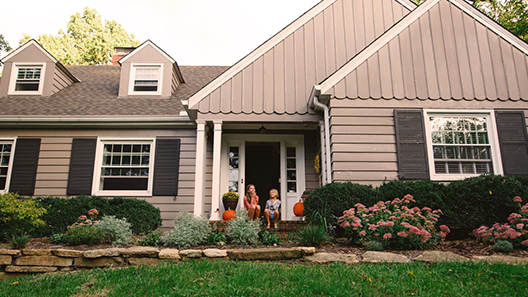Have you considered making your home more energy efficient? There are small and big changes you can make that will drastically reduce the amount of energy you consume each month, and thus lower your electricity bill!
With the progression of technology, solar panels are becoming more affordable every year, and harnessing the sun’s energy to power your home is more feasible than ever. Most people install PV solar panels (photovoltaic). These are what you see on people’s roofs and over parking lots, etc. Although solar panels are still not necessarily cheap to install, they will provide you with cost-saving benefits (and tax incentives) over time.

Is Your Home Suitable for Solar Panels?
Solar panels are built to work in all climates, but some roofs aren’t suitable for the technology due to age or tree cover. The size, shape, and slope of your roof is also something to consider. Typically, solar panels work best on south-facing roofs with shallow slope angles.
If you’re not a homeowner, you may be able to take advantage of community solar energy. Community solar allows multiple people or households to benefit from a singular solar setup that can be installed on or off-site and the cost is divided among participants. Learn more about community solar and find a community solar project near you.
Benefits of Going Solar
Good for the environment. Using solar power instead of conventional forms of energy is not only more cost-effective over time, but it’s great for the environment too. Solar power reduces the amount of carbon and other pollutants that are emitted into the environment, translating into less pollution and cleaner air and water for everyone!
A good investment. Installing solar panels on your home will likely increase your home’s resale value. Studies show that solar panels are viewed as home upgrades, much like a kitchen renovation or add-on, and have found that buyers are willing to pay, on average, $15,000 per solar array on a home. Homes with solar arrays also tend to sell faster than homes without.
Tax benefits and savings. Depending on where you live, you may be eligible for tax benefits and other government savings if you have solar panels. The professionals who install your solar system should have specific information on this, and the DSIRE (Database of State Incentives for Renewable Energy) provides you with a list of financial incentives based on your zip code.
In terms of monthly savings, the amount of money you can save depends on your electricity usage, the size and orientation of your solar system, and the rates set by your utility provider. In some parts of the US, solar panels are competitively priced with local utility companies.
Low-Cost Energy Savings
If you’re not ready for solar panels quite yet, here are a few other low-cost options that can reduce your monthly electricity bill (and help out the environment).
Adjust your thermostat. We’re still in the thick of summer in some parts of the US, but if you adopt the habit of lowering your thermostat (by 10-15 degrees) during the workday, you can save an average of 5-15% a year. Conversely, using electric or gas space heaters are great in the winter time, but are one of the least energy efficient methods of warming up. Many space heaters use an average of 1,500 watts of energy to run and are a costly way to drain your energy. Look for energy-efficient models, or get in the habit of layering and using cozy blankets!
Reduce unnecessary water usage. Install low-flow shower heads. They have about half the flow-rate of conventional shower heads and improve your home’s efficiency! Additionally, be mindful of when your faucet is running - turn it off in between shaving or brushing your teeth and avoid doing half-loads of laundry, which use excessive water inefficiently.
Eliminate energy vampires. That sounds scary! Did you know that appliances and cables that are plugged in but not in use are still draining energy? According to Energy.gov, the average charger consumes 0.26 watts of energy when not in use and 2.24 watts when connected to your phone. This may not have a huge impact on its own, but collectively with other energy vampires, you could save up to 10% on your monthly energy bill by unplugging when not in use!
-------
There’s definitely at least one thing on this list that you can adopt today to start reducing your energy bill and your carbon footprint. Consider going solar if you haven’t already, and can work it into your budget. It’s a great long-term investment for your wallet, home value, and our global future! Perhaps a cash-out refinance can provide the cash you need to tackle your solar panel project.
Check out our other articles on homeownership here.



